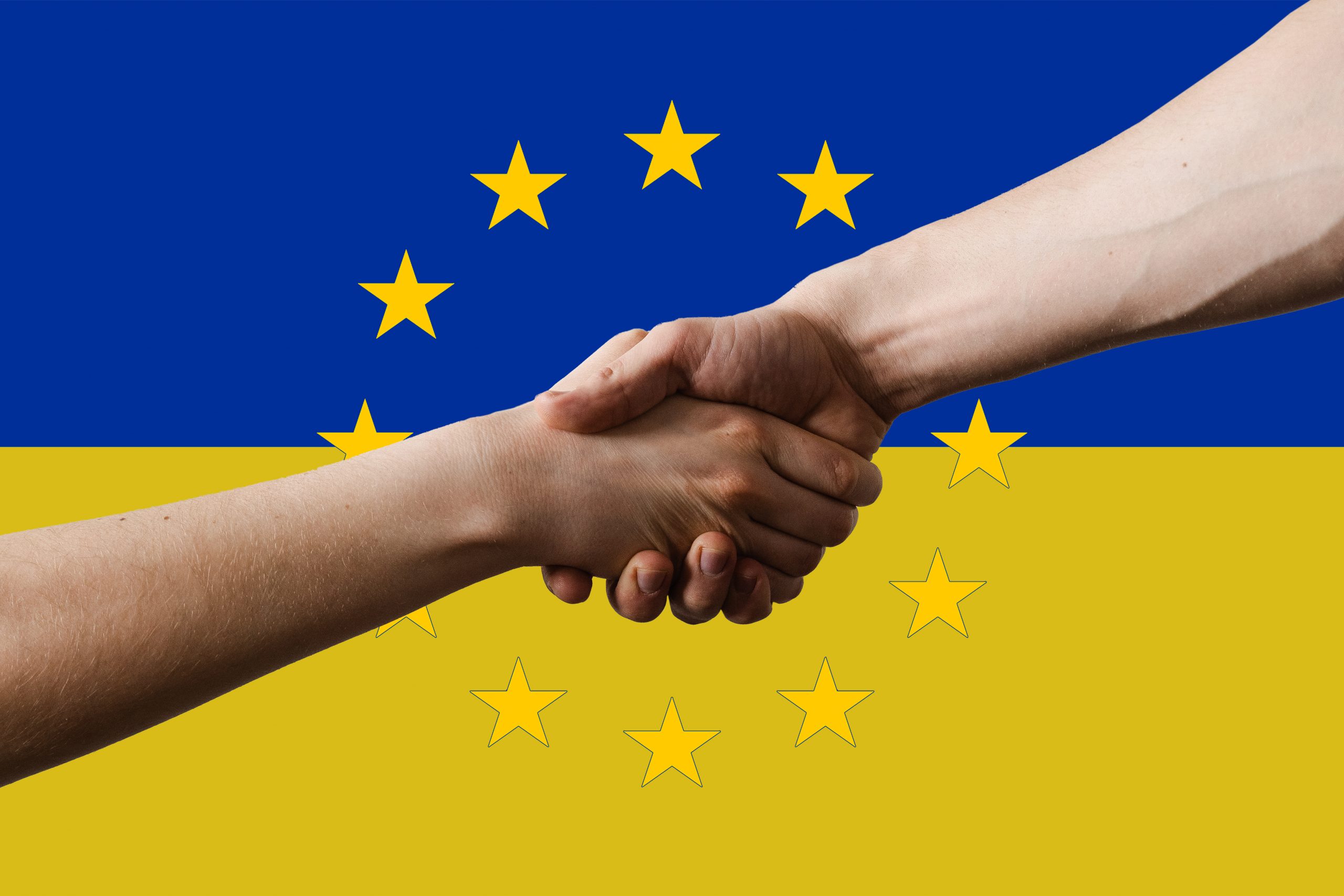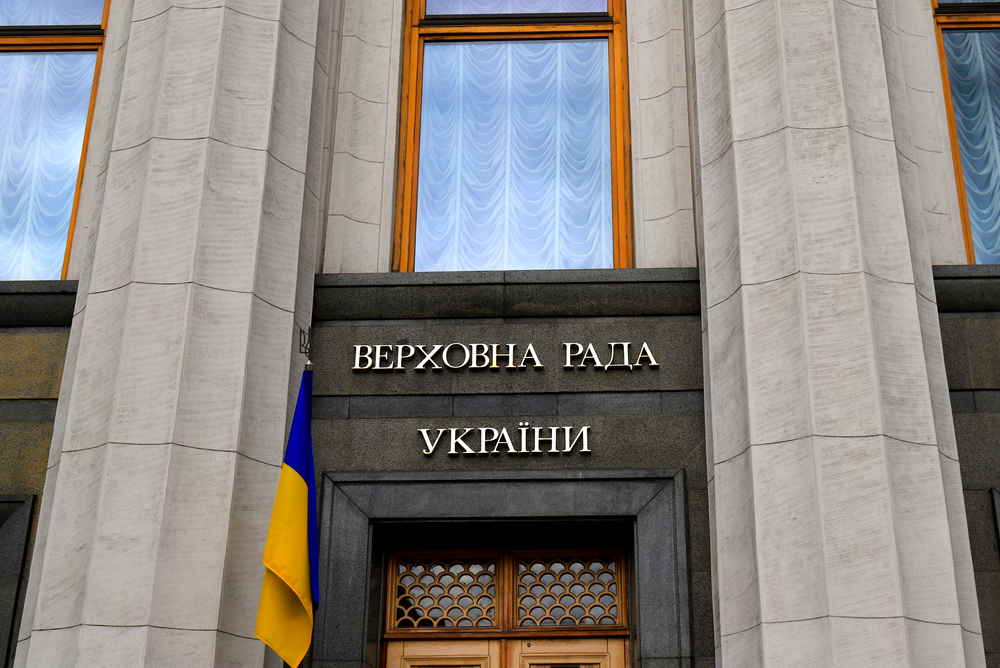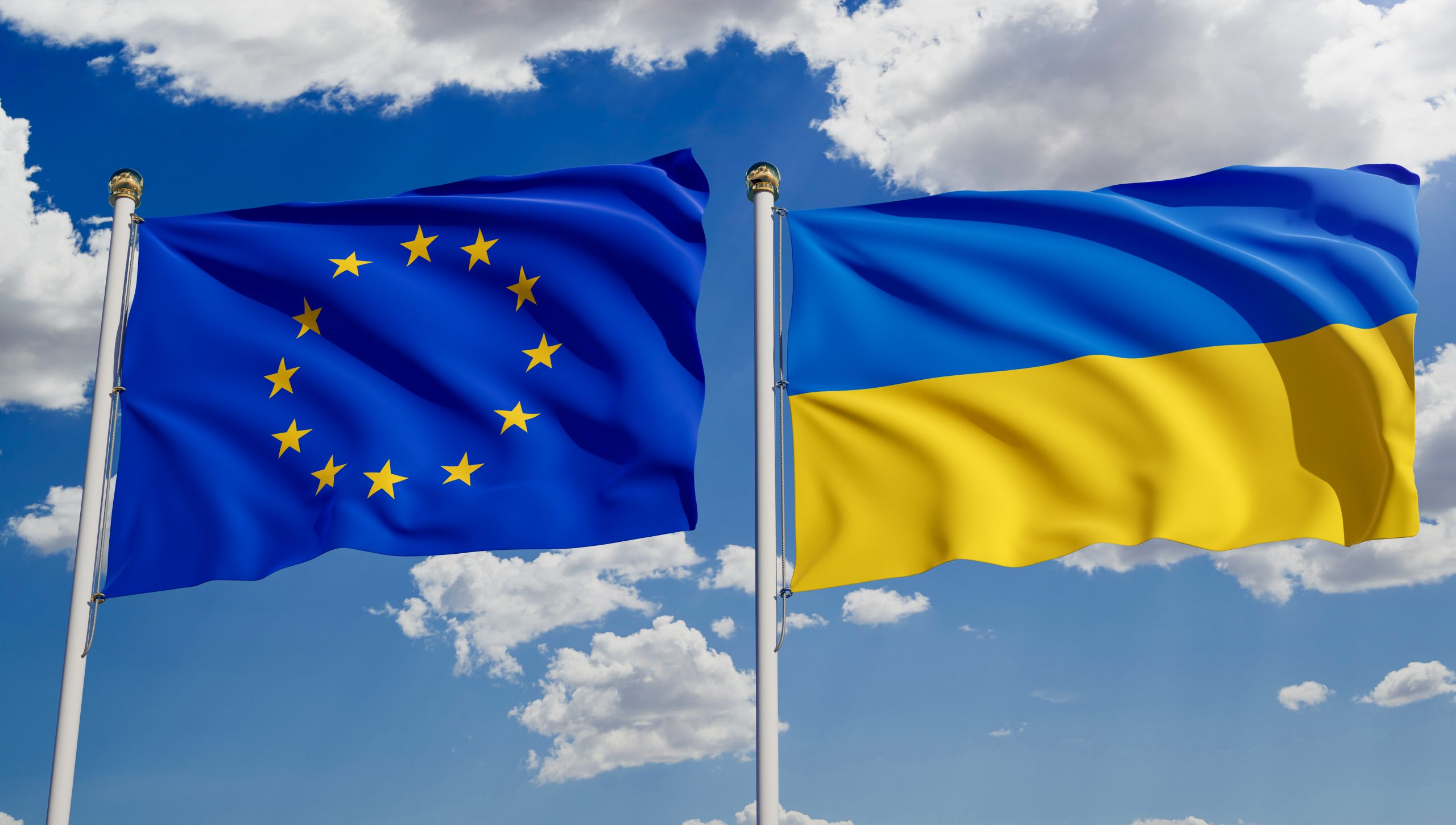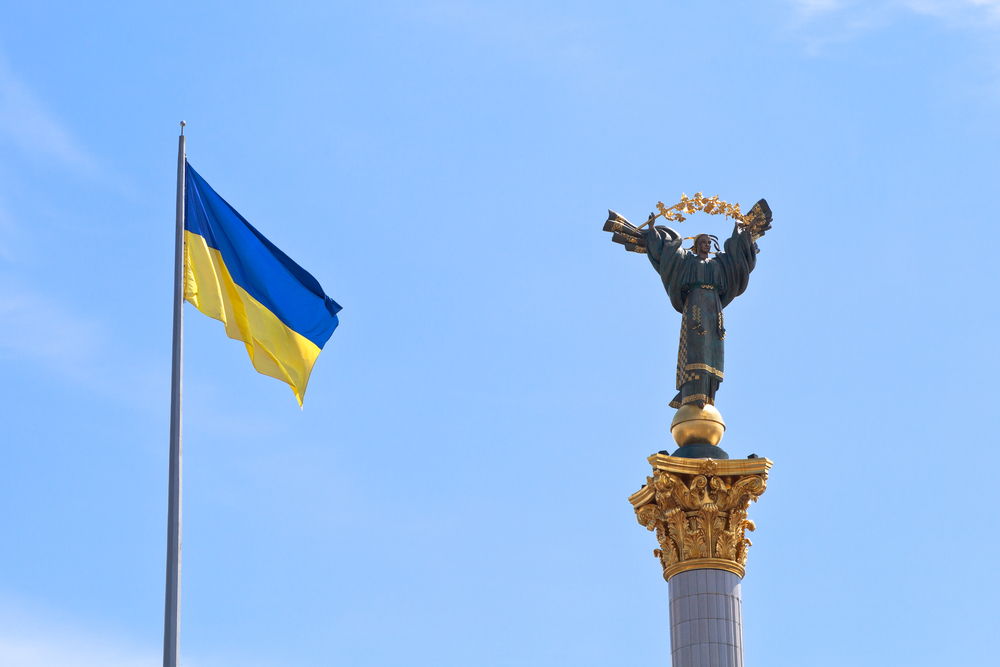The European Parliament proposal to create a common economic space between the EU and the Eastern Partnership is needed to keep the motivation and incentives for reforms in Ukraine, Georgia and Moldova. This is an opinion of Dr Cristina Gherasimov, Research Fellow at Robert Bosch Center for Central and Eastern Europe, Russia and Central Asia, German Council on Foreign Relations. According to her, in 10 years it will be clearer whether Kyiv provided solid reforms for its potential EU membership, but currently, Ukrainians are dissatisfied with the reform process and still expect a lot from their political elites.
The European Parliament proposed creating a single economic space with Eastern Partnership countries. Is it not too early to introduce this system?
I think it is too early in the sense that the EU cannot open up the 4 freedoms (free movement of goods, capital, persons, freedom to establish and provide services – ed.) today, but I don’t think that was the message coming from the European Parliament. I think that the message that came from the Parliament is that as an institution, they have a much more ambitious and much more visionary stance towards the future of that region than the European Commission and the European Council. And I think, it is stated very clearly that this process, to gradually integrate the countries of the Eastern Partnership into the EU’s common economic space is a long one, and it needs to be backed up by solid and credible reforms, coming from the countries of the Eastern Partnership.
And, of course, namely, this is the proposal that is, first of all, addressed to the countries that want closer ties with the EU – like Ukraine, Georgia, Moldova and maybe Armenia in the future, as well, but it is not a proposal that is on the table starting 2021. It is something that countries need to work towards via the reform process. It also comes from the “more for more” principle. You need to be able to maintain the motivation and the incentives for these countries to reform. That is because reforms are not that straightforward, as we have all seen, and if there is no light at the end of the tunnel for such a painful reform process, and no belief that the EU is also reciprocating in terms of what it gives to the region, then why would these countries put so much effort to change from the inside? To wrap it up, I think the way you put it, it is definitely too early, but it is not too early to set it as an objective in a couple of years from now so that it is clear towards what these countries are moving.
And, of course, namely, this is the proposal that is, first of all, addressed to the countries that want closer ties with the EU – like Ukraine, Georgia, Moldova and maybe Armenia in the future, as well, but it is not a proposal that is on the table starting 2021. It is something that countries need to work towards via the reform process. It also comes from the “more for more” principle. You need to be able to maintain the motivation and the incentives for these countries to reform.
Many experts and diplomats say that in the next 10 years it will be obvious whether Ukraine can join the EU. Do you agree with that?
I think that the processes of Europeanisation and democratization that Ukraine is going through today do not have a final station where we could say: yes, we are now ready to join. I think it is a struggle, a day-by-day struggle not only of political elites but first of all of civil society to put pressure on their political elites to change and to really adopt and embed a different style of approaching good governance.
I think in 10 years we will have more certainty in the sense of whether this choice that Ukraine has made 6 years ago, to become a member of the European Union, has been backed up by solid reforms. But it does not mean that this reform process cannot be rolled back unfortunately even 10 years from now. If we look at what is happening in some new EU member states from Central and Eastern Europe, we would have big doubts today whether Hungary or Poland are ready to join today the Union from a rule of law perspective, although they are already part of the Union. So from this point of view, the process of preparation to join the EU, as a day-by-day tedious process of law harmonization and reform implementation helps with consolidation of who you are as a society, as a nation in the long run. Then, if you are ready to also practice these European values as they are your own, you may be ready to avoid scenarios that we can see today in countries like Bulgaria, Hungary, Poland, and so on which struggle with democratic rollbacks.
But what do you think of the current state of Ukraine, of democracy in Ukraine?
I think that the presidential elections last year made it very clear that the Ukrainians want change and they are not ready to wait more for it. The promises that former president Poroshenko has made for a second term were not convincing enough to grant him another mandate. Ukrainians took the risk as a society to go with a new president that had no previous political experience whatsoever. So what we see today is a country that still expects a lot of changes from its political elites. The expectations are very high; it is clear that there is dissatisfaction with how the reform process is going on. But it is also very clear that the President and his party are reacting to the way how the society understands and perceives what is going on. So what we see today in Ukraine is a natural process of practicing democracy. It is not easy, it can go various ways, but it is a day-by-day process, where both the politicians and civil society working hand-in-hand to progress more towards a better society tomorrow.
Do you think that the EU should support Ukraine more in its fight against corruption? Should they have a kind of mechanism to control it?
I think what we saw before President Zelensky took office was that this sandwich-effect and partnership between the Western community of donors and reform-oriented segments of Ukrainian society worked very well together to push the boundaries of reforms and the will of political elites to do more.
What we see today is that this is not really working any longer. We don’t see the same pressure and impact coming from this partnership and mostly because Ukrainian political elites are not ready to engage with civil society actors today as much as they were let’s say even two years ago. From this perspective, the pressure to push for further reforms of the anti-corruption institutions is mostly left in the hands of the Western partners. These are already doing a lot. We saw, for instance, the IMF in its June 9 memorandum really prioritizing judicial reform. We saw that the need for this key reform to be conducted was heard by the President. However, the renewed judicial reform proposal that was put together on June 22 by President Zelensky was not really what was asked by the IMF. But definitely, I would say that today Western partners do have this conditionality mechanism in their hands that can still work and put pressure, if not to deliver genuine reform, to at least put reforms as priority matters on the governmental agenda.
You wrote a very good article about COVID-19 in Eastern Partnership countries and EU support in this regard to the region. Do you think that the recent Eastern Partnership summit made good proposals in this field?
Well, in this regard I think the summit was, first of all, a recognition of all the great efforts that Team Europe put together in the last three months to address the challenges raised by the pandemic in the Eastern Partnership countries. It was to show its solidarity with the people in the region, and it was also a pledge for further support and help in delivering of what has been promised so far. So from this perspective, I would not say that the summit brought in some additional new funding or new initiatives but it was definitely used as an opportunity to recognize all the work of Team Europe and pledge more support to work together towards achieving the promised deliverables.
There is a lot of disinformation in this regard from Russia, from China. Ukraine and other countries suffer from this false information, from fake news as well. Do you think that the European Union probably should support Ukraine and other Eastern Partnership countries also in this field?
I think that for the EU it was difficult to manage all tasks at once when this all was just starting back in March. It was very clear that due to the complexity of the bureaucratic process the Commission had a slower start in providing immediate support than for instance the support that came from Russia or from China. The information that was available in March through various communication channels made the EU look weak and not ready to respond on time. However, I think the magnitude of support definitely overtook the size of the support that was provided by any other country for the region. This was not matched back in March by an equally strong communications strategy to explain the citizens of these countries what the EU is doing and what kind of support it is providing. I think the EU, nevertheless, the Commission has learnt its lessons very quickly. They adapted to the message that they received not only from the Eastern Partnership countries but also from the Balkans that they need to be quicker also in terms of communicating of what they are doing. So at this moment, I think even though there are still no social polls that show how the citizens of the Eastern Partnership countries have reacted or appreciated the support coming from the EU, it is clear that the support is much more visible now than it was 2 or 3 months ago. From this perspective, I would say that this damage that was done at the beginning of the pandemic’s arrival in the region has been counteracted with more communication tools and a clearer strategy how do we explain to people what we are doing for them.
So now, though disinformation is still a problem, it is not a problem only in the Eastern Partnership countries. Disinformation is a challenge across the board when it comes to understanding the roots of the pandemic and the support and measures taken around it for limiting its effects. These countries are very much affected and I think the EU institutions have this in the back of their actions when working also with EU delegations on the ground. We need still to see concrete results. That I think is still a process in the making.
When it comes to fighting disinformation, any tools that we have so far have been proven to be quite weak. And the reason for that is because the magnitude of disinformation is very much linked to how people view the world more broadly and the lenses that they put on when they analyse what is happening around them. We see a lot of polarization among citizens, those who believe in COVID, those who don’t believe in COVID, those who think that this is a master project of a mastermind interested in inserting chips into people’s brains and so on.
In general, not only with COVID-19, Ukraine has a huge problem with disinformation. If it was up to you, what would you do to counteract it, to fight with it?
When it comes to fighting disinformation, any tools that we have so far have been proven to be quite weak. And the reason for that is because the magnitude of disinformation is very much linked to how people view the world more broadly and the lenses that they put on when they analyse what is happening around them. We see a lot of polarization among citizens, those who believe in COVID, those who don’t believe in COVID, those who think that this is a master project of a mastermind interested in inserting chips into people’s brains and so on. And it is very difficult to fight when these values are so much ingrained in your brain. So I think the number one immediate tool that can be used is to have more finances readily available for organisations which monitor what is coming out in the media and to explain which one is fake news, as well as provide a better narrative that is fact-based and backed up by solid scientific evidence. Second, which I think is much more difficult, is the need to address disinformation at the level of the educational system, starting from schools but also in universities. This needs to be probably introduced as a subject in the curriculum: what kind of websites we read and how do we analyse the information around us. So there are two approaches: in the short term we can use civil society organisations to immediately counteract the fake news that are there. In Ukraine there are such organisations already doing a great job, also in Georgia, in Moldova – they are quite weakly financially supported. I think they can do more with more resources available. And second, it is addressing the educational part which is a longer-term endeavour, but will definitely have a much more solid impact than just to address immediate fake news in the media space around us.






 UA
UA FR
FR DE
DE



